- Apply
- Visit
- Request Info
- Give
Burr Hall
Written by Dwight Bachman
Published on October 15, 2021
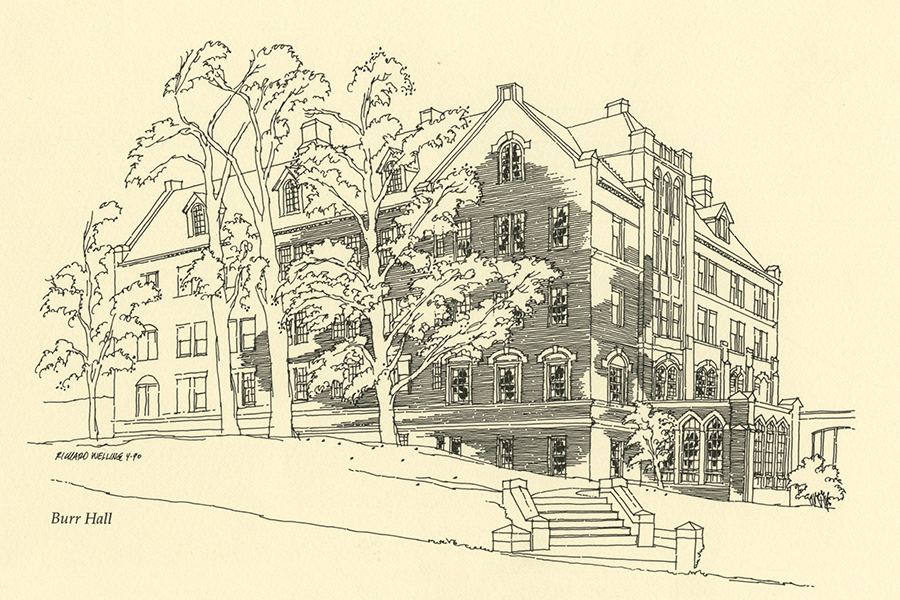
As Eastern Connecticut State University’s oldest building, Burr Hall will celebrate its 100th anniversary next year. But it is not just its seniority that makes the longstanding residence hall such an iconic edifice on campus. It has many stories to tell!
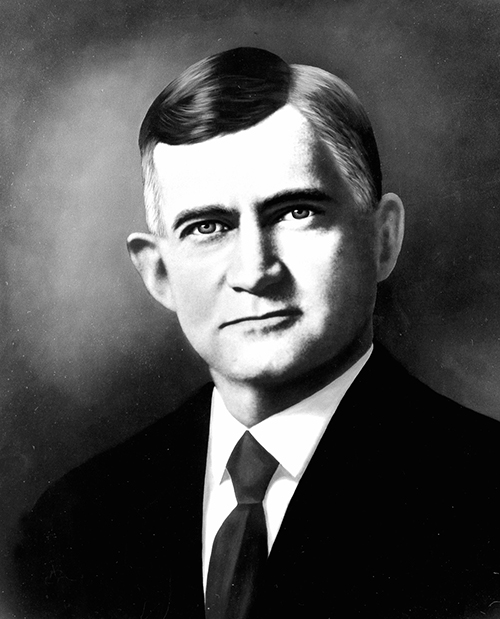
Named after Henry Burr, the third principal of the Willimantic State Normal School, the building was the only residence hall on campus for decades and was exclusively home to women students until going coed in 2006.
Like the Willimantic State Normal School, which came into being in 1889 only after spirited lobbying in front of the Connecticut General Assembly by Willimantic leaders, Burr Hall almost didn’t happen. Funds were approved but construction was delayed by World War I. In 1919 architectural plans were finally approved and the building opened two years later following a $270,000 construction project.
While Henry Burr wasn’t around to see the building open — he left in 1918 — he was a strong advocate of on-campus housing, arguing that it was safer for the students as the school could monitor and manage winter heating better than local landlords. He also felt on-campus housing would increase enrollments, which ended up doubling from 1920-23.
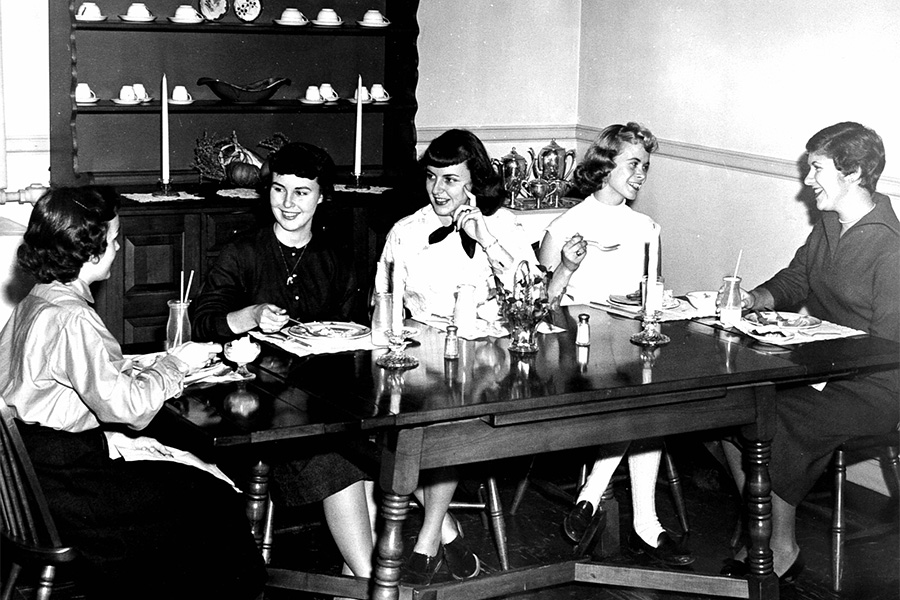
Female residents of Burr Hall were under strict rules regarding visitors — male and otherwise — and it was known around campus as “The Bastille.” In an EASTERN Magazine story in fall 2004, Cecilia Allen ’32 recalled that even family members were not allowed up to the young women’s rooms. “We weren’t allowed to leave Burr, not even to go to the library, which was next door in the old main building, without signing out with the proctor in the foyer, and then signing in at the library with another proctor.” When Cecile’s future husband, Donald, visited, “He had to greet Ms. Gerald, the dean, and she would escort him to the living room until I came down.”
Several decades later, Burr Hall’s rules weren’t that much more relaxed, yet alumni from that era still fondly recall their time at Burr. Elvira (McGovern) Flight ’52 recalls that “Sophia and I shared Room 304 for four years; when fraternity brothers gained entrance to search for stuff we always felt safe. One night we opened our door to see Miss Holbrook, our housemother, standing at the foot of attic stairs. She was holding a machete and demanding that the ‘bros’ come down before the police arrived.”
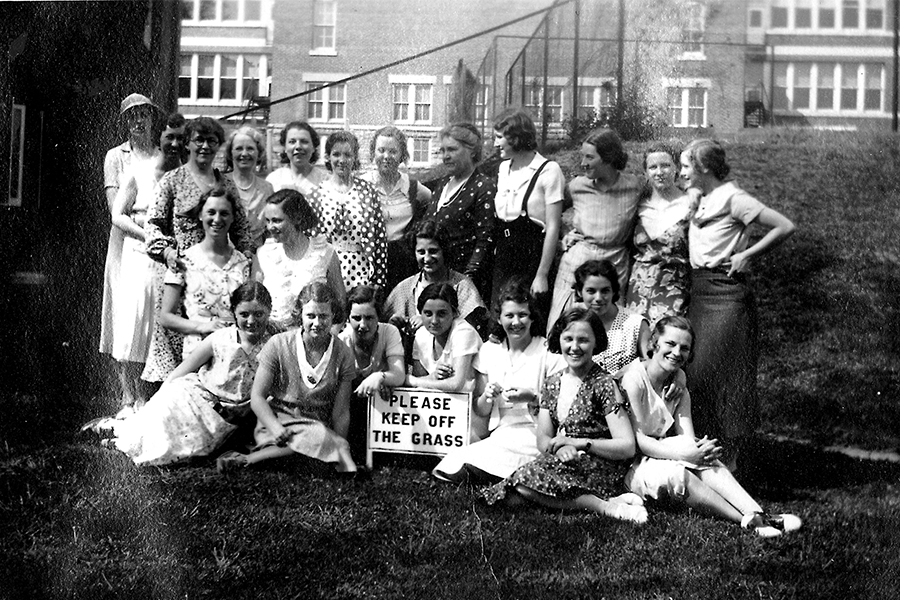
David Babbitt ’61 offers a male student’s perspective: “I have many fond memories of visits there. I lived in Beckert Hall as a freshman and Knight House the next three years. Burr was all women in those days and was the only place where meals were served. In Burr Hall, social events were staged and dates were met. Up the stairs to the first floor you would be greeted by someone at the desk and your date was notified that you were there on the ‘squawk box.’ No males entered the domain of the ladies. A housemother was there to keep order and a few faculty also resided there. There were hours for visiting and during the week there was a curfew, perhaps 10 p.m. — we all survived it!”
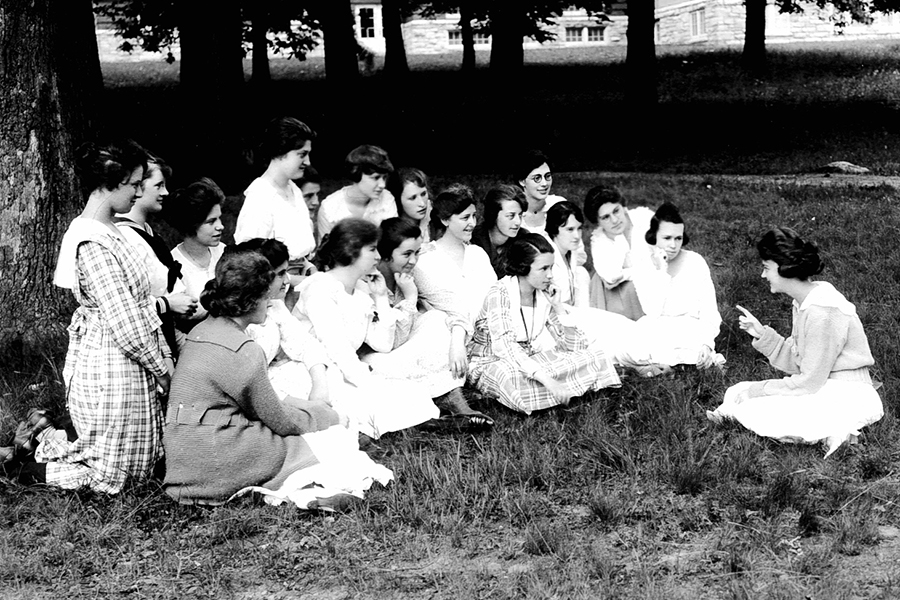
And then there was a day that no one over the age of 60 will forget. As Rev. Barbara (Hibbard) Schreier ’69 recalls: “My most vivid memory of Burr Hall was on Nov. 22, 1963. I was a freshman. Several of the girls were in the lounge watching soap operas, but suddenly the program was interrupted. John F. Kennedy had been shot and was taken to the hospital. Shortly afterward, he died. There was hysteria in the lounge, which caused all of us coming back to the dorm to check to see what was causing the commotion.”
The Ghost of Gertrude Beer
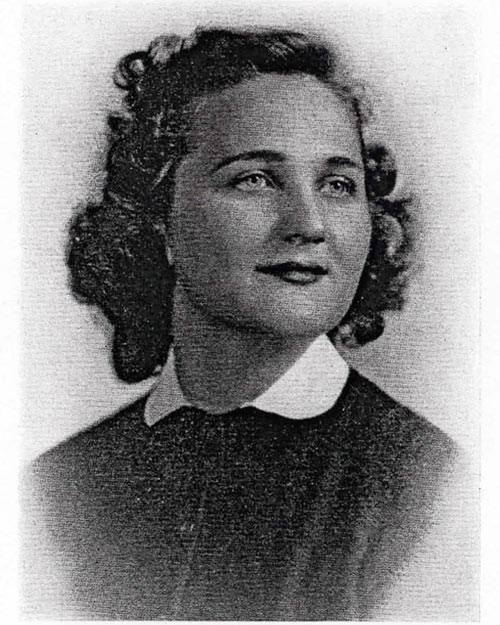
Eighty years ago — on Jan. 25, 1940 — student Gertrude Beer was found near death on the ground outside Burr Hall, after apparently jumping from a third-floor window in the middle of the night. Her roommate, Mary Fisher, found her early that morning and “Trudy” passed away that afternoon at the local hospital. Her last words to Fisher were, “Don’t tell my mother.”
In the days prior to her death, Beer had been found sleepwalking, was having trouble getting to sleep and was experiencing depression. For decades following Beer’s tragic passing, residents of Burr Hall have claimed seeing or hearing what has become known as “Gertrude’s Ghost.”
Ghost sightings have ranged from “apparition” sightings to footsteps, moving furniture, missing belongings, doors slamming mysteriously and light switches going on and off without explanation.
Whether the ghost stories are just rampant imaginations or the supernatural in action, the stories themselves keep the legend alive. In 1987, a popular story described an on-campus Ouija Board game that announced, “Gerty Lives!” And, as recently as 2013, Burr Hall residents used dowsing rods to see if they could detect paranormal activity in the hall. Not surprisingly, some of the 40 students present were convinced Trudy was back for a visit.


